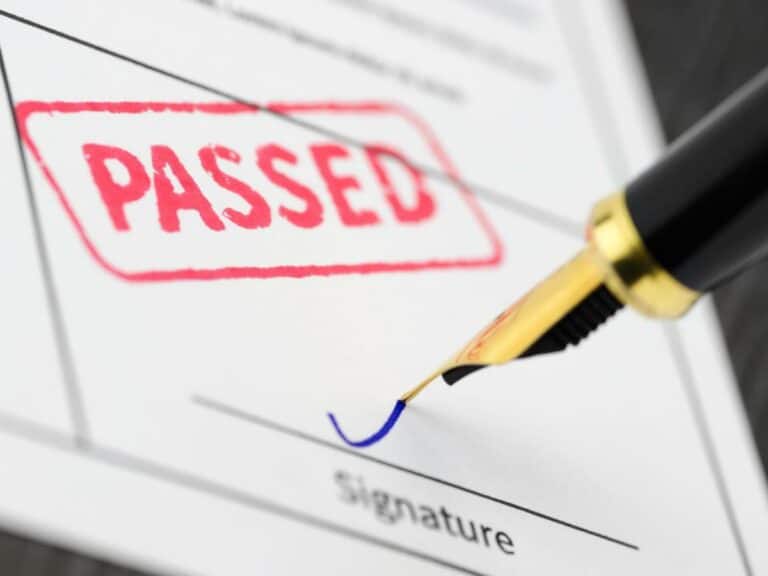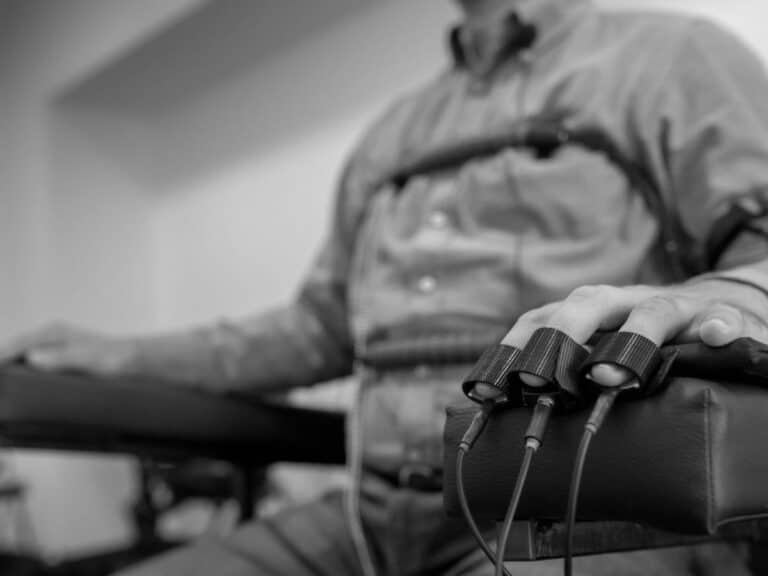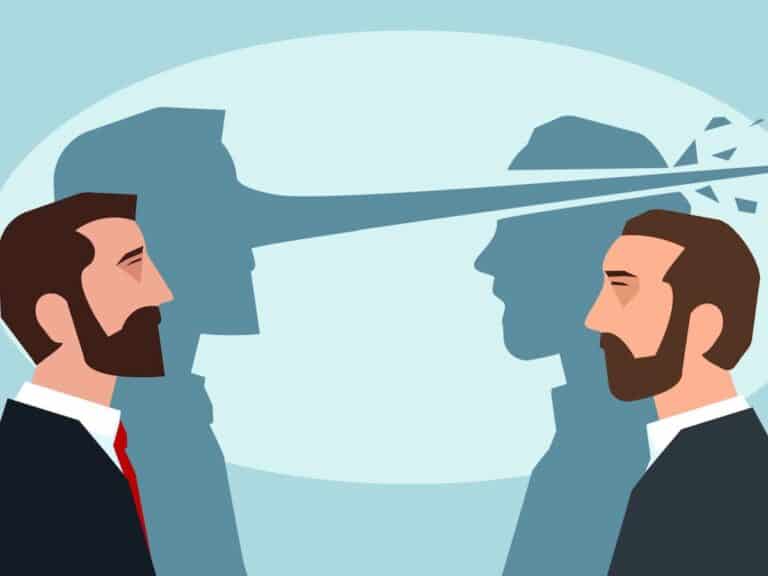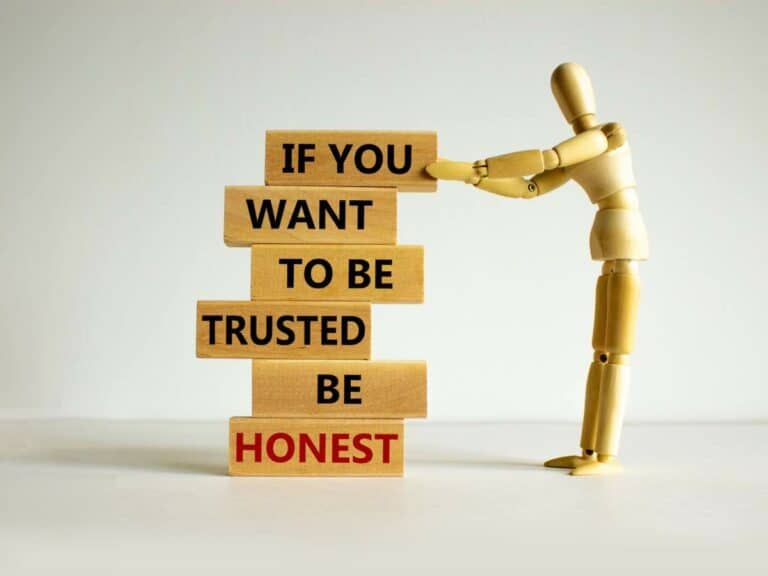What Can Cause A False Positive On A Polygraph
Polygraphs have an accuracy rate of 80% to 90% only. It all depends on who you ask about lie detector tests. False positives are a possibility, which is why polygraph results generally do not have court admissibility. In the 20 plus states where polygraphs can be accepted as pieces of evidence in trials, both defendants and prosecutors must first agree to its use.
False positive polygraph results can be due to polygraph examinees and/or examiners. Polygraphs can be contaminated by the emotional and physical state of individuals undergoing them as well as the competency and experience of the persons administering them. Machine error can also be blamed in some instances.
Keep reading this post if you are about to undergo a polygraph and fear it might make you appear guilty even though you are innocent.
Below, I will talk about the things that can cause a false positive on a polygraph.
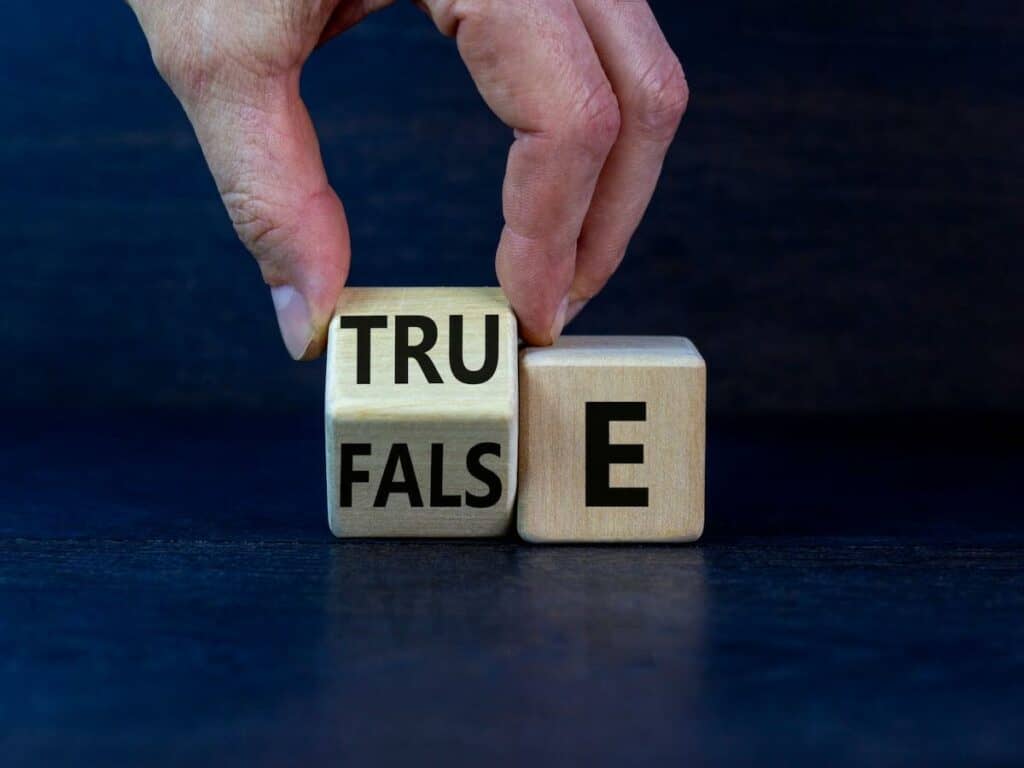
Can a Polygraph Commit Machine Error?
A polygraph machine, just like any other machine, is susceptible to a machine error. Given that a polygraph is designed to monitor and record an assortment of physiologic changes in the body of the examinee, any malfunctioning component can cause the machine to produce a result that’s far from accurate.
Luckily for someone undergoing a lie detector test, it’s not just a polygraph machine that carries out the entire task — an examiner who operates the polygraph and interprets its readings is there, too.
In case the polygraph machine is not in tip-top shape, a good examiner will be able to tell so.
During your polygraph examination, you will not be bombarded with questions right away. You will undergo what’s referred to as the pretest phase before you are hooked up to the machine. In this, the examiner will orient you about how the test will go, such as giving you an idea of the questioning technique that will be used.
Also a goal of the pretest phase is to make sure that you are mentally and physically suitable to undergo the test as well as to ensure that you are in a proper frame of mind, which can help keep a false positive result at bay.
It’s while conducting the pretest that the examiner develops the question set for the polygraph exam proper.
With enough industry experience, a lie detector examiner will be able to detect any machine error while establishing baseline data. Any indicator that the polygraph is not running like a well-oiled machine is a red flag that can contaminate the outcome, which can make it less likely to be admissible in court.
So, before we proceed to the next topic, let’s sum up what the pretest phase, which, by the way, is also referred to as the calibration phase by some, is all about:
- To educate the examinee on the ability of a polygraph to determine the truthfulness of one’s answer.
- To learn more about the examinee’s physiology to ensure that he or she is suitable to undergo the test.
- To confirm that the polygraph machine is in good working condition at the time of the examination.
7 Conditions Can Cause a False Positive on Polygraph
Many conditions can contaminate the results of a polygraph examination. Some of them include medical in nature such as hypertension and anxiety disorder. Taking certain drugs, prescription and illegal alike, and being pregnant and sleep deprived are also things that can result in a false positive outcome.
Although a polygraph test can be up to 90% accurate, just like what was mentioned earlier in this post, there are times when the readings can suggest that you are lying when in fact you are telling nothing but the truth.
Below, you will come across some of the things that can lead to a false positive polygraph examination.
1. Blood pressure
One of the various physiologic changes in the body of a person who is undergoing a lie detector test that the machine monitors and records is blood pressure. And why not? Lying creates a feeling of guilt, which can leave an individual stressed. And someone who is stressed almost always experiences an increase in blood pressure.
Because of this, many wonder if having a health condition that has an effect on blood pressure can lead to a false positive result in a polygraph examination.
Does having high blood pressure or hypertension make you fail the test?
It’s true that hypertension can affect a polygraph in that the blood pressure readings of the examinee who has it are constantly higher than the readings of an individual who does not suffer from the same issue. But it doesn’t mean, however, that he or she is being deceitful and the other is being truthful.
Informing the examiner that you are diagnosed with hypertension before the examination proper begins allows him or her to make the necessary adjustments in order to prevent a false positive result.
And it’s exactly due to this why the importance of the pretest phase cannot be stressed enough!
If the polygraph examiner is well-aware of the fact that you have hypertension, then he or she knows that an elevated blood pressure reading is your baseline. So, in other words, if your blood pressure goes past 120/80 mmHg, which is considered normal blood pressure, the examiner understands that you are still probably being truthful.
Besides your medical condition, it’s also important to disclose to the polygraph examiner whether or not you are taking medications for your hypertension during the pretest phase.
We will talk about medications/drugs in a few, so keep reading!
2. The nerves
Whether guilty or not, it’s not uncommon for someone who is undergoing a polygraph test to feel nervous. Except for maybe psychopaths who, according to psychiatrists, can easily beat the examination as they are capable of suppressing true information, thus making them good liars.
Don’t forget the fact that they also have the tendency to show a lack of guilt and empathic concern.
The point is feeling anxious about taking a polygraph test can cause all monitored physiologic processes, from your blood pressure to temperature, to be higher from the very beginning.
So, in other words, the session could end up in a false positive if your body reacts in the same manner no matter if you are being truthful or deceitful. But with a seasoned polygraph examiner, a false positive can be foiled — he or she should be able to tell the differences between being anxious and being dishonest.
For example, recently I was called in by the spouse of a person who failed a pre-employment test. He failed when questioned on cocaine use. His spouse was sure he had never used cocaine, so how could he fail?
First, he could have lied to her.
Second, he might have something about the use of cocaine that bothered him. Perhaps someone used or purchased it in his presence, and it makes him feel uncomfortable. That would show up on the test.
What most people don’t realize about a polygraph exam is that the examiner will go over the questions with the examinee several times, making sure there is no area of discomfort. It is vital to the integrity of the test that the examinee be honest about what is bothering them on any given issue before the test.
In the case I just mentioned, if perhaps the issue was that someone had used cocaine in this man’s presence, the examiner would have phrased the question, with that in mind. For instance, “Other than what you told me, have you ever used cocaine?” If the examinee was honest, the test will show it one way or the other.
With a good examiner conducting the polygraph test, all possible scenarios will be taken into account.
3. Medications/drugs
There are certain medications or drugs for certain health conditions or problems that can impact all kinds of physiologic processes. Needless to say, taking some of them can alter the way the body responds to stress and guilt, which can then influence the outcome of a polygraph examination.
In some instances, these medications or drugs can make a person’s body completely unresponsive, thus causing the examiner to have a difficult time evaluating collected data during the test.
Some of the things a person may take that can interfere with the use of a lie detector include:
- Anti-hypertensive drugs. Most drugs that people with hypertension take lower both blood pressure and heart rate. While they are in effect, anti-hypertensive drugs may impact polygraph testing, which may lead to inconclusive results that require further pretesting and examination.
- Anti-anxiety medications. Needless to say, drugs for individuals who suffer from anxiety work by promoting a more relaxed state of mind. And just like anti-hypertensive drugs, they can lower blood pressure and heart rate, too. Strong anti-anxiety medications may also keep a person from fully comprehending the questions.
- Illegal drugs. Cocaine, heroin, marijuana, narcotics, street drugs — all of these can alter physiologic processes and even affect how individuals who just took them react to environmental stimuli. But in most instances, a polygraph examiner can easily tell whether or not a person is intoxicated prior to a lie detector test.
4. Pregnancy
Technically speaking, women who are in the family way can undergo a lie detector test. However, it’s not uncommon for some companies that administer polygraph examinations to not do it on them.
Avoiding liability — this is one of the main reasons why. If something untoward were to happen to a pregnant woman during or after the test, they would be held accountable for that. For instance, she could have a miscarriage as a result of tremendous stress from having to answer some crime-related questions.
Then there’s also the fact that the results could be inconclusive.
Like a person with hypertension, the blood pressure of a pregnant woman is higher than usual. That’s because her blood volume can increase by as much as 45% during pregnancy in order to nourish her growing baby.
Since there is more blood to pump throughout her body, her heart has to pump faster — a rapid heart rate! It’s no secret that the heart rate is one of the various things that a polygraph instrument monitors and records. With her heart beating more per minute, it’s not unlikely for her to appear guilty question after question.
The further a woman is along her pregnancy, the more uncomfortable she can get. And being uncomfortable can definitely impact the readings a lie detector machine makes.
5. Being sick
Do you have a cold or the flu? Then it’s probably not a good idea for you to undergo a polygraph, unless you find having a false positive result perfectly fine.
Someone who has an ongoing infection usually has elevated blood pressure and heart rate. His or her temperature is likely to be increased, too, and certain polygraph machines are also designed to observe the temperature. Similarly, some medications for reducing fever or dealing with the sniffles or a cough can alter physiologic responses.
And speaking of a cough, coughing while undergoing the test is a complete no-no.
Once you are hooked up to the instrument, it’s a must that you remain as perfectly still as you possibly can. Coughing — or sneezing or sniffling — can mess with the polygraph readings.
6. Exhaustion
In some instances, there is no need for you to be pregnant or have a medical condition just to increase the chances of contaminating your polygraph. Something as simple as being stressed and tired is sometimes more than enough to cause a false positive result to come into being.
Your vital signs — everything that the polygraph monitors — are very much likely to be elevated.
Squeezing your polygraph exam between two important tasks can also lead to an inconclusive outcome — the thought of failing to make it to your next engagement on time can impact the readings.
Sleep deprivation is also something that can contribute to a false positive polygraph result. And this is why some examiners usually exclude people who haven’t had a good night’s sleep from being tested.
However, some individuals may deliberately deprive themselves of sleep before a polygraph test in order to interfere with the results — you could be numb to emotional or stressful situations if all you want is to get some shut-eye. But then there are times, too, when they have no other choice but to stay wide awake.
For instance, the security staff members of a building who are tired after a night shift may get false positive results when questioned about a jewelry store robbery.
7. Incompetent examiner
Sometimes, the blame for a false positive can be put on the individual who interprets the readings of the polygraph machine himself or herself — the examiner!
We earlier talked about the importance of the conduction of a pretest prior to the exam proper.
Failure of an examiner to carry out this phase properly can have an impact on the lie detector results. Not thoroughly discussing to you how a polygraph machine works and how the test will go, for instance, could easily lead to a false positive because you are not at all at ease.
Or making you too comfortable can also contaminate the outcome.
Insufficient preparation can keep any medical condition you have or the medication/drugs you are taking from being put out in the open, keeping the polygraph examiner from making sound assessments.
What Can You Do If You Feel an Error Was Made?
If the examinee feels that an error was committed during the polygraph test, there are certain steps that may be taken. They include requesting another examination or getting a second opinion by asking another polygraph examiner to do a review. Filing a complaint to the right agency may be done, too.
Luckily for anyone who undergoes a lie detector test and believes that the result is not right, there is no reason to simply accept it — there are things that can be done, although most of them require time and money.
Here are some suggestions if you cannot accept the outcome of your polygraph:
- Ask for another examination. If you believe that a bad state of mind or physical health affected the result, you may consider the polygraph test to be repeated. However, if the contamination of the primary result was the examiner’s fault, the same thing may happen all over again if the same person will conduct it once more.
- Get a second opinion. Because many things can cause a false positive polygraph result, it’s a good idea for the records to be reviewed by an independent examiner. The goal is to obtain what’s referred to as a negative assurance, which is the provision of a guarantee that the results obtained are accurate.
- Seek the assistance of the APA. Short for the American Polygraph Association, the APA is an organization that consists of professional polygraph examiners, educators and researchers sharing the common goal of developing, communicating and promoting valid and ethical polygraph practices.
- File a formal complaint. Contact the state licensing board if you believe that your polygraph examiner broke the rules. And if a company fires you or refuses to hire you because of a false positive polygraph, you may get in touch with the Department of Labor — there’s the so-called Employee Polygraph Protection Act (EPPA).
Just Before You Undergo a Polygraph Test
When taking a polygraph examination, the least you would want is a false positive result. And while proponents say that a polygraph is up to 90% accurate, critics agree that it’s just only 70% of the time correct.
Above, we discussed some of the things that can contaminate a polygraph test, which is something that can make you look like you are being deceptive while you are being truthful. If you feel that you failed the exam for the wrong reasons, you can always do something to try to correct any error.

